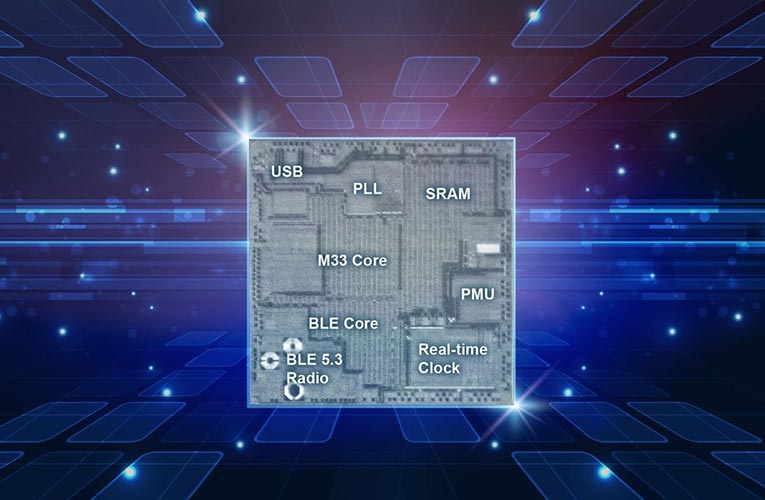
Renesas Electronics has announced their first microcontroller built on advanced 22nm semiconductor process node technology. The new microcontroller is an extension to Renesas’s popular RA-family and features a 32-bit Arm Cortex-M33 cores and Bluetooth 5.3 Low Energy provided via an onboard Software Defined Radio (SDR). The new 22nm process node technology enables Renesas’s MCU to provide excellent performance and efficiency with the added benefit of reduced power consumption. Advanced process technology also provides richer integration (such as RF, etc.), which can realize the same function on a smaller die area, thereby achieving a higher integration of peripherals and storage. It also offers a future-proof solution for products targeting long lifespan by providing upgradability to either the new application software or new Bluetooth capabilities even after the deployment, to ensure compliance to the latest specification.
End product manufacturers can leverage the full feature set of previous Bluetooth LE specification releases. Whether designing devices for direction-finding applications utilizing the Bluetooth 5.1 Angle of Arrival (AoA) / Angle of Departure (AoD) features or adding low power stereo audio transmission to products by employing Bluetooth 5.2 isochronous channels, developers now only need one device to support all of these features.
Renesas will combine the new 22nm MCU with numerous compatible devices from their existing portfolio. These combinations are technically vetted system architectures from mutually compatible devices that work together seamlessly to bring an optimized, low-risk design for faster time to market. Renesas offers more than 300 such combinations with a wide range of products from the Renesas portfolio to enable customers to speed up the design process and bring their products to market more quickly. The new 22nm devices are expected to be launched globally by the 4th quarter of 2023.

